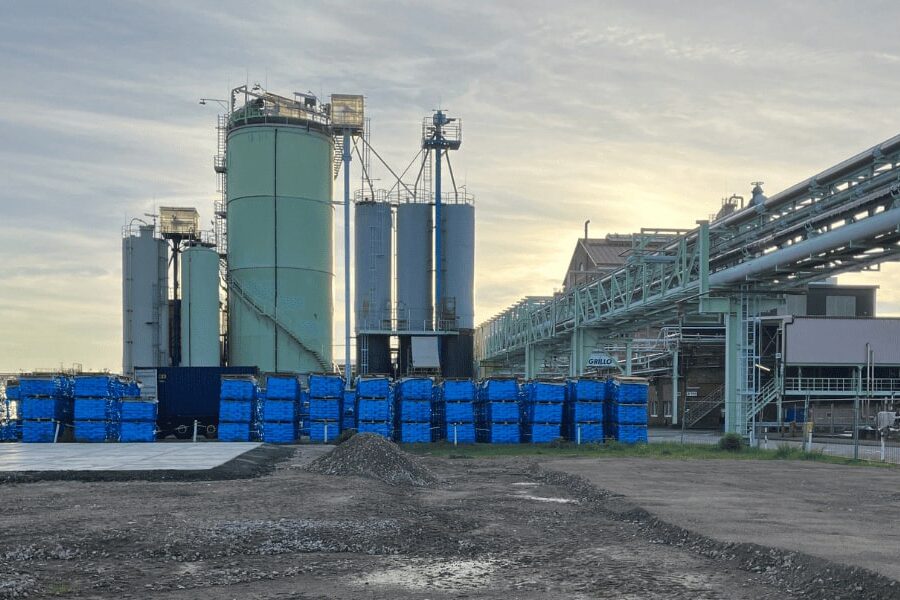Vulcan Energy and BASF launch site search for geothermal project
The German-Australian company Vulcan Energy and BASF signed a letter of intent three months ago to investigate the use of geothermal energy at the chemical company’s Ludwigshafen site. While BASF is interested in geothermal energy, Vulcan is focussing on the extraction of lithium from deep geothermal energy. Both sides can now get started with initial project preparations: Vulcan Energy states that it has received the official authorisations for the first development phase. The focus is on two-dimensional seismic measurements over an area of around 75 kilometres in the Vorderpfalz region, which is part of the Upper Rhine Graben and includes the towns of Bad Dürkheim, Deidesheim, Mutterstadt, Frankenthal and Ludwigshafen. Vulcan is acting as project developer, responsible for the exploration and providing significant technical support.
The results of the 2D seismic surveys and the subsequently planned 3D surveys will determine the optimal location for the next phase of development, as Vulcan Energy writes. CEO Cris Moreno sees the project as a blueprint for potential further collaborations: ““Critically, this development reflects our broader integrated business approach, whereby we will seek to replicate this model across the URVBF through strategic partnerships with large, industrial companies like BASF. This approach not only drives sustainable energy supply in the regions but heavily contributes to Europe’s transition to green electromobility.”
Tilmann Hezel, Senior Vice President Infrastructure at BASF in Ludwigshafen, commented: “This project represents one of the most important transformation projects on our site, which will potentially cover a significant proportion of our future energy requirements without the use of fossil fuels.”
To put this in context: Vulcan Energy recently announced that it had produced lithium hydroxide for the first time using its lithium precursor from geothermal brine. In other words, lithium made in Germany. Another major announcement followed shortly afterwards: Vulcan and the chemical giant BASF are joining forces to make the use of geothermal energy possible at BASF’s headquarters.
Together, the partners want to evaluate the utilisation of geothermal energy from deep geothermal energy, which could supply BASF’s main plant with base load-capable, renewable energy in the future. According to the two companies, the neighbouring towns should also benefit from the sustainable heat and are participating in the seismic exploration in the Upper Rhine Graben as a first step. Vulcan is also considering building a lithium extraction plant for the production of green lithium on BASF’s site to capitalise on synergies from the project.
“Assuming that the exploratory work is successful, heat pumps could be used to take advantage of the area’s geothermal energy to generate CO2-free steam,” BASF said in an earlier statement. With a potential output of 300 megawatts of thermal energy, around four million tonnes of this important energy source for the chemical industry could be produced annually at the Ludwigshafen site – without the use of fossil fuels. “This would prevent the emission of approximately 800,000 metric tons of CO₂, making a significant contribution to reducing greenhouse gas emissions at BASF’s main site,” it added.
As part of the project, Vulcan plans to produce sustainable lithium for the German and European battery and automotive industries in parallel. The thermal water in the Upper Rhine Graben has a high concentration of the light metal. While BASF would use the hot thermal water to generate steam, Vulcan could then use it to extract lithium.
Vulcan’s main aim with its approach is to create a local source of sustainable lithium in Europe. Vulcan’s combined geothermal and lithium resource is the largest in Europe, with licence areas concentrated in the Upper Rhine Valley in Germany. In February 2023, Vulcan announced the results of a definitive feasibility study for the first phase of its lithium project, according to which Vulcan initially intends to produce 24,000 tonnes of lithium hydroxide monohydrate (LHM) per year. This is produced from lithium chloride in a multi-stage process.
To this end, Vulcan has built two test plants in Germany to refine the processes for the subsequent commercial plants. In April 2024, the first lithium chloride was filtered out of the geothermal brine in the so-called LEOP (‘Lithium Extraction Optimisation Plant’) in Landau. This preliminary product was further processed into battery-grade lithium hydroxide at the Central Lithium Electrolysis Optimisation Plant (CLEOP) at Industriepark Höchst in November 2024. Both plants will later serve as a template for analogue facilities on a larger scale – potentially on the BASF site, as mentioned above.
investi.com.au (PDF)





0 Comments